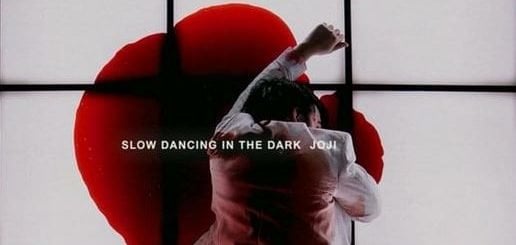I’LL SEE YOU IN 40 by Joji Lyrics Meaning – Navigating the Labyrinth of Longing and Letting Go
Lyrics
Please don’t come around
Please don’t come around
Please don’t, please don’t
I was trying to
It’s alright (it’s alright)
It’s alright (it’s alright)
If you were 22 forever, would be nice (would be nice)
Would be nice
Why you dare to take that away
I don’t understand (I don’t understand)
I could name a thousand different reasons you could fight (could fight)
All your might, I know I’m right
I could feel the change (feel the change)
The way you sing your song (the way you sing your song)
I could feel the waves (I could feel the waves)
You send from kingdom’s sun (you send from kingdom’s sun)
I will find a way
Ooh yeah
I will find myself
And I will love you
With my soul
You’re all I’ve ever wanted
I know that I love you
Still driving
Take my hands in yours, please don’t go
I love you
I love you
I love you
I love you
I will find a way
I will find a way
In the mesmerizing ballad ‘I’LL SEE YOU IN 40,’ Joji constructs a sonic bridge between ethereal melancholy and the raw edges of unfulfilled longing. The song, a complex layering of minimalist soundscapes and heartfelt vocals, delves into the persistent ache of holding onto the ephemeral and the peace found in eventual release. Joji, with his characteristic blend of gut-wrenching lyrics and haunting melodies, invites us into a deeply personal space, a realm where time stands still, and emotions run as deep as the oceans he so often references.
Echoing the sentiments of modern-day romantics, ‘I’LL SEE YOU IN 40’ ruminates on the themes of love, time, change, and acceptance. Through a careful analysis of Joji’s masterful lyricism and evocative sound design, the song’s intricate expressions of heartache and surrender are revealed. Delving into the depths of this seemingly unassuming track uncovers the poignant story of an artist wrestling with the impermanence of all things—a journey that listeners are compelled to undertake alongside him.
A Requiem for Youth: Holding Onto 22
The first verse imprints upon us an earnest desire for the perpetuity of youth—’If you were 22 forever, would be nice.’ Joji captures the universal longing to freeze a moment in time when life was simpler, and love was unscathed by the weariness of age and experience. The specificity of the age 22 serves as an anchor, a reminder of times marked by freedom and the bittersweet taste of invincibility. Through Joji’s gentle crooning, we are reminded that such a wish, while enchanting, is laced with the inevitable sorrow of impossibility.
Through the following lines, ‘Why you dare to take that away, I don’t understand,’ the artist poses an accusatory, almost defiant, question to the forces that threaten to rob him of this golden era. It’s the sorrowful plea of someone coming to terms with the harsh truths of maturity, where the thousand different reasons to fight lose weight against the unstoppable tide of change.
The Tumultuous Tides of Change: Emotional Waves in Lyricism
Embracing the maritime imagery that often colors his work, Joji speaks of feeling the change through ‘the way you sing your song’ and ‘the waves you send from kingdom’s sun.’ These haunting words evoke the powerful, sometimes overwhelming, influence of another’s emotions over our own well-being. It’s not just about the literal voice or music, but how the essence of a person or their influence can move us—like waves alternately soothing and eroding our shores.
One can sense a duality in these lines, an inner battle between the serenity of acceptance and the turmoil brought about by the emotional undercurrent of a love that continues to resonate and shape his world long after its tangible presence has faded.
The Vow to Persevere: A Promise Amidst Pain
The refrain ‘I will find a way’ is a solemn oath, a chorus that is repeated as a mantra of resilience in the face of fading love. It’s a promise, a sort of devotional pledge not only to the beloved but to oneself, to keep moving forward despite the heartbreak. Even in the thick of the chaos of emotions, Joji expresses an unwavering determination to find himself—to reconstruct his identity in the absence of the significant other.
The affirmation to keep loving ‘with my soul’ signifies an unyielding connection, a line that bares the depth of his commitment to feelings that transcend the corporeal bounds. It’s a testament to love’s eternal nature, despite the physical distances that life may impose.
Eternal Echoes: The Memorable Lines That Define a Generation
The sheer simplicity of the repeated declaration ‘I love you’ allows for a raw emotional purity that breaks down walls between the artist and the audience. Each utterance intensifies the gravity of the emotions, drawing the listener deeper into Joji’s personal narrative. This repetition serves not only as a lyrical device but also as a rhythmic anchor, emphasizing the sustained presence of love in the midst of transition.
Touching on the hearts of a generation steeped in the complexities of modern relationships, these memorable lines resonate on a fundamental level, creating a shared experience of love’s spellbinding and sometimes tragic nature. The embrace of vulnerability showcased in this repetition champions the courage required to express and withstand the tempests of the heart.
Unraveling the Threads: The Hidden Meaning Behind the Title
The title ‘I’LL SEE YOU IN 40’ itself is a loaded phrase, filled with subtext and an enigmatic sense of closure. Forty can represent years, days, minutes—a time frame that feels simultaneously specific and indefinite. The phrase suggests a farewell, an agreement to a hiatus in contact, and the hopefulness of re-engagement in the distant future.
In metaphorical terms, the ’40’ could symbolize the end of a biblical wander in the desert, used as a time of testing, reflecting, and transforming. Just as the Israelites journeyed for 40 years before reaching the Promised Land, it invokes the idea of Joji setting out on a personal odyssey—coming to terms with change, letting go, and emerging renewed. This elusive timeline teases the willingness to wait, to heal, and perhaps to reunite, layering the already complex narrative with a deeper contemplation of time’s role in love and personal growth.








